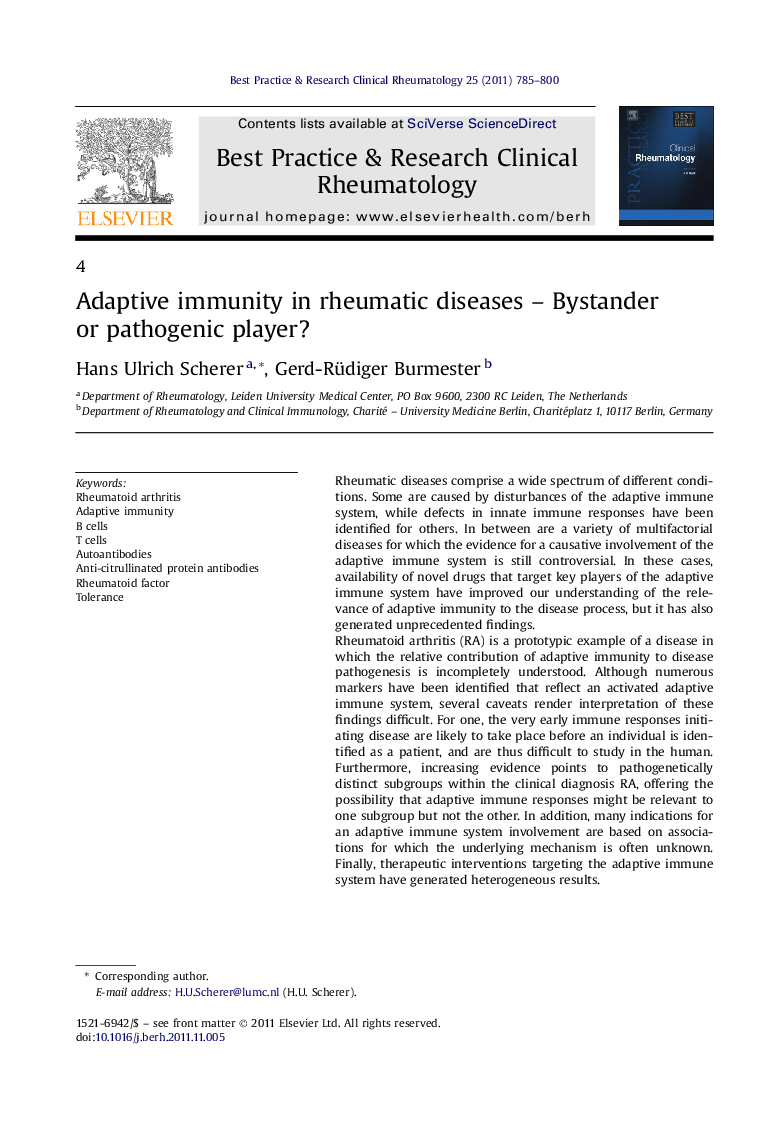| Article ID | Journal | Published Year | Pages | File Type |
|---|---|---|---|---|
| 3342920 | Best Practice & Research Clinical Rheumatology | 2011 | 16 Pages |
Rheumatic diseases comprise a wide spectrum of different conditions. Some are caused by disturbances of the adaptive immune system, while defects in innate immune responses have been identified for others. In between are a variety of multifactorial diseases for which the evidence for a causative involvement of the adaptive immune system is still controversial. In these cases, availability of novel drugs that target key players of the adaptive immune system have improved our understanding of the relevance of adaptive immunity to the disease process, but it has also generated unprecedented findings.Rheumatoid arthritis (RA) is a prototypic example of a disease in which the relative contribution of adaptive immunity to disease pathogenesis is incompletely understood. Although numerous markers have been identified that reflect an activated adaptive immune system, several caveats render interpretation of these findings difficult. For one, the very early immune responses initiating disease are likely to take place before an individual is identified as a patient, and are thus difficult to study in the human. Furthermore, increasing evidence points to pathogenetically distinct subgroups within the clinical diagnosis RA, offering the possibility that adaptive immune responses might be relevant to one subgroup but not the other. In addition, many indications for an adaptive immune system involvement are based on associations for which the underlying mechanism is often unknown. Finally, therapeutic interventions targeting the adaptive immune system have generated heterogeneous results.The present review addresses these issues by placing adaptive immune responses in the context of rheumatic diseases, and by reviewing the evidence for a contribution of adaptive immunity to RA.
